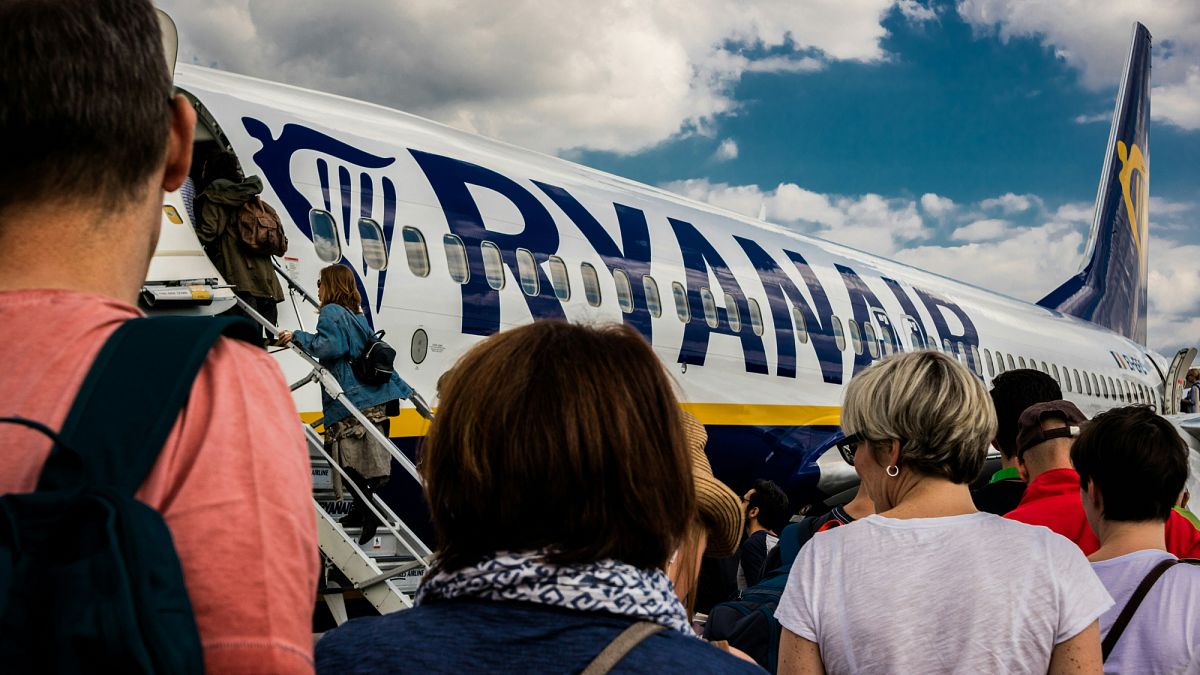Travel
Ryanair pulls out of two Danish airports blaming ‘harmful’ tax

Ryanair’s Decision to Exit Danish Airports: Understanding the Impacts
1. Ryanair’s Withdrawal and Its Immediate Consequences
Ryanair, one of Europe’s largest budget airlines, has announced its decision to cease all flights to and from Aalborg Airport in Denmark, effective from the end of March. This move will result in the loss of 1.7 million seats and 32 routes during the summer season, significantly impacting Denmark’s air connectivity. Additionally, Ryanair will close its base at Billund Airport, where it currently operates two aircraft. Both Aalborg and Billund are key destinations for Ryanair, with flights connecting to major cities like London Stansted, Edinburgh, and Manchester. The closure of these routes and the base at Billund is expected to have far-reaching implications for Denmark’s regional airports, tourism industry, and economy.
The airline attributes its decision to two primary factors: the Danish government’s introduction of an aviation tax and the failure to reach a competitive long-term agreement with Billund Airport. The new tax, set to come into effect in January 2025, will impose a fee of up to DKK 50 (approximately €6.70) on each departing passenger. Ryanair has criticized this move as “short-sighted” and “anti-growth,” arguing that it will render Denmark’s regional airports “hopelessly uncompetitive” compared to other EU countries.
2. The Controversy Over the Danish Aviation Tax
At the heart of Ryanair’s decision is Denmark’s new aviation tax, which the government plans to introduce in an effort to reduce the environmental impact of air travel. The tax will be levied on all departing passengers and is intended to encourage flyers to consider more sustainable travel options. While the government aims to use this tax to promote environmental sustainability, airlines like Ryanair have expressed strong opposition, claiming it will harm Denmark’s economy and connectivity.
Ryanair argues that the tax will discourage passengers from flying to and from Denmark, leading to a decline in air traffic and economic activity. The airline points to other European countries, such as Sweden, Italy, and Hungary, which are moving in the opposite direction by abolishing or reducing aviation taxes to stimulate post-pandemic recovery and growth. Ryanair’s criticism highlights the tension between environmental goals and economic competitiveness, with the airline firmly on the side of the latter.
3. Environmental Campaigners Weigh In on the Tax Debate
While Ryanair and other airlines have condemned the aviation tax as counterproductive, environmental campaigners have welcomed the move as a step in the right direction. Advocacy groups argue that air travel is a significant contributor to greenhouse gas emissions and that measures to reduce flying are essential to combat climate change. Hannah Lawrence of Stay Grounded, a network campaigning against aviation expansion, emphasizes the need for policies that discourage unnecessary air travel.
Lawrence suggests that the Danish tax does not go far enough and calls for more aggressive measures, such as a “Frequent Flying Levy.” This levy would target wealthy passengers who take multiple flights per year, aiming to reduce emissions by curbing excessive air travel. Environmental campaigners believe that such policies are critical to achieving Europe’s climate goals and ensuring a sustainable future.
4. The Broader Implications for Denmark’s Economy and Tourism
Ryanair’s withdrawal from Aalborg and Billund will have significant consequences for Denmark’s economy, particularly for its tourism and hospitality sectors. Billund, home to the iconic Legoland theme park, is amajor tourist destination, and the loss of direct flights from key cities like London, Edinburgh, and Manchester will likely deter visitors. Similarly, Aalborg Airport serves as a vital connection for regional travelers and businesses, and its diminished accessibility will disrupt local commerce and connectivity.
The closure of these routes also raises concerns about the long-term viability of Denmark’s regional airports. Without a competitive aviation hub, these airports may struggle to attract other airlines, leading to a decline in infrastructure investment and job losses. Ryanair’s departure serves as a stark reminder of the delicate balance between environmental policy and economic competitiveness, with Denmark facing a challenging landscape in both areas.
5. The Future of Aviation Taxes Across Europe
The controversy over Denmark’s aviation tax reflects a broader debate unfolding across Europe about the role of taxation in shaping the aviation industry. While some governments, like Denmark’s, are introducing or increasing taxes to address environmental concerns, others are reducing or eliminating them to bolster economic recovery. This divergence in approaches highlights the difficulty of reconciling climate action with economic growth in the aviation sector.
Ryanair’s response to the Danish tax serves as a warning to other European governments considering similar measures. The airline’s decision to exit Denmark’s regional airports underscores the potential economic fallout of such policies, particularly for smaller airports and regional economies. However, environmental campaigners argue that the long-term benefits of reducing air travel outweigh the short-term economic costs, setting the stage for a contentious policy debate in the years to come.
6. Conclusion: Balancing Competitiveness and Sustainability
The decision by Ryanair to abandon its operations in Aalborg and Billund has sparked a heated discussion about the impact of aviation taxes on economic competitiveness and environmental sustainability. While the Danish government aims to use the tax to promote greener travel habits, airlines like Ryanair argue that such measures will harm Denmark’s connectivity, tourism, and economy.Environmental campaigners, on the other hand, see the tax as a necessary step toward reducing air traffic and meeting climate goals.
As Europe grapples with the challenges of climate change and economic recovery, the debate over aviation taxes will likely continue to intensify. Policymakers must navigate the complex interplay between economic and environmental priorities to find solutions that balance competitiveness with sustainability. For Denmark, the immediate challenge is to assess the impact of its aviation tax and determine whether it can maintain a viable aviation industry while pursuing its climate ambitions. The outcome of this experiment will have far-reaching implications for the future of air travel in Europe.











